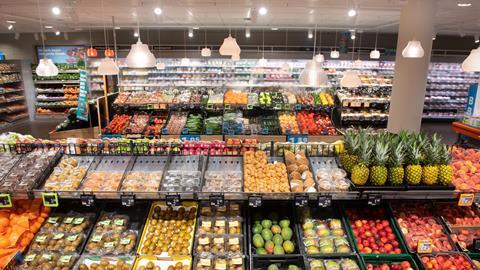Dutch supermarket chain says it now sources more than half of its fresh fruit and veg from within the Netherlands
Dutch retail chain Albert Heijn has confirmed that it will no longer sell fresh fruit and vegetables that have been transported by air.
By the middle of this year, products including sugar snap peas, green beans and passion fruit will only be stocked if they arrive by sea or road.
The decision, which was first announced in 2022, is part of the company’s strategy to source fresh produce from within the Netherlands whenever possible and to use more sustainable modes of transport for imported items.
“From 1 June 2023, all our unprocessed fruit and vegetables will be transported via sea container or road transport,” says Henk van Harn, director of merchandising and sourcing at Albert Heijn, who added that such a policy cannot be implemented at the drop of a hat.
“You don’t make a choice like that overnight,” he explains. “We also have a responsibility towards our suppliers with whom we have been working for decades.”
In recent years, Albert Heijn has worked with growers and suppliers to develop alternative transport options and to grow products in different areas.
Its end goal, it says, is to buy fruit and vegetables “as close as possible and as far away as necessary”, and that balance all depends on four main priorities: quality, sustainability, safety and cost.
A product like citrus, for example, is imported from further afield since it is not grown in the Netherlands, it points out.
“We think it is important to deal responsibly with our share of environmental impact. We want to keep the impact of our activities as small as possible,” continues Van Harn.
According to Albert Heijn, half of the fruit and vegetables sold in its stores come from the Netherlands.
That proportion is said to be on the increase thanks to better use of seasons and the use of new production and storage techniques.
In fact, the chain says it has sold over 40m more Dutch-grown products, including strawberries in summer, early Elstar apples, and year-round Conference pears and potatoes.
It is now running a small-scale trial to source locally grown ginger, a product it usually imports from China or South America.




